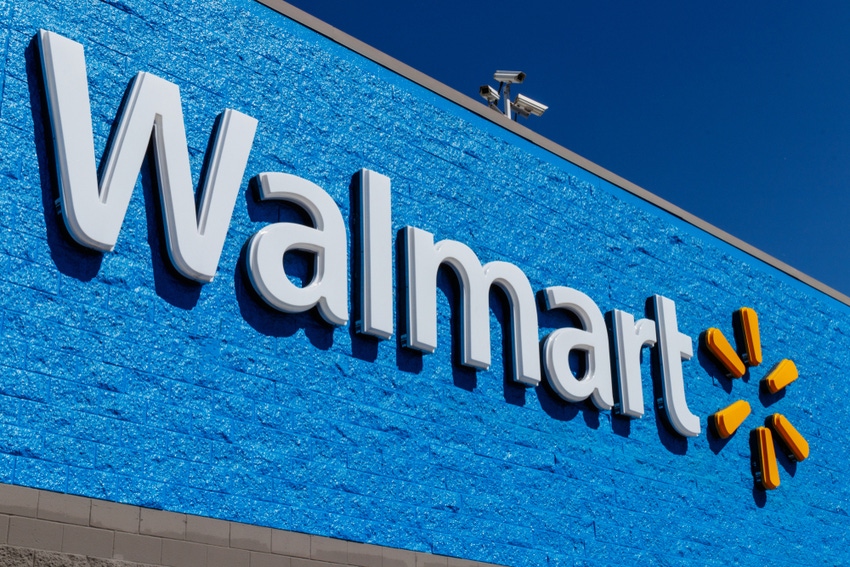The new head of Samsung’s B2B mobile channel came in after serving as its director of strategic sales.
September 30, 2022

Jeff Gustafson recently began his ninth year as an executive at Samsung Electronics America in the company’s enterprise mobile B2B business division. Gustafson is a mobile communications industry veteran, having held positions at BlackBerry and AT&T, among others.

Samsung’s Jeff Gustafson
At Samsung, Gustafson’s focus was on direct sales to strategic customers including its largest, Walmart. Late last year, Samsung asked Gustafson to assume the role of head of channel mobile B2B at Samsung Electronics America. John Curtis, who led Samsung’s B2B channel organization for roughly one year, left the company last December.
According to Gustafson, the move was a natural evolution of his work leading Samsung Mobile’s direct enterprise sales. On the heels of several key launches, including the company’s new foldable phones and refresh of its rugged devices, Gustafson discussed with Channel Futures his new role, and the opportunities he sees for partners.
Channel Futures: How do you like working in the channel so far?
Jeff Gustafson: It’s a fun business. I’m definitely learning how our channel partners work. It’s interesting, because at Samsung, we redesigned the way we look at our reseller community. We have our NSPs of course, and we have what we call our strategic channel partners, which are named accounts. Those are some of the VARs and some of the bigger vertical-based resellers. And then our third bucket is our emerging partners. Those are resellers that haven’t been touched a lot by Samsung’s direct support. We’ve aligned to a team now that’s working directly with them to help identify new business for us, and to replicate and scale the things we’re doing with our other partners.
CF: What are you focusing on?
JG: We’re focusing on and how we want to repeat and scale some of our big wins. Last year, when I was on the direct sales side, I led the Walmart account team. In the middle of last year, we had won a deal with Walmart, where we deployed 740,000 XCover Pros to their associates. It’s what we call the connected associate project. It was really a unique use case where they took our devices and they gave them to the associates to use them at work, but then also for personal use. It’s helping create a more productive work environment, while at the same time making employees happier and giving them something when they leave. It was a massive win. Probably one of the largest mobile wins ever. But now we want to take that win and replicate it and tell that story across our business.
CF: How do you see replicating that through the channel?
JG: Their use case is something we want to take across the channel focusing on the connected associate. That can be connected associate in retail, manufacturing or food services, health care or just a connected worker. And that could be with a phone or a tablet. What makes it unique is how you wrap it with our solutions — our software and our services. We have our whole Knox suite, which the customer could use to enhance the device — they could lock down the device, they can have specific applications launch. We’re selling those full solutions as part of this connected associate project across multiple verticals. And then of course warranty and all the services that come with it.
CF: Why is that important to the channel?
JG: The connected associate project with Walmart wouldn’t have been successful unless we worked with our partners. Working with our partners, we aligned with them, which really helped make that deployment successful and it continues to be today.
CF: How much progress has Samsung made in the rugged device market?
JG: When you refer to Samsung, people think it’s a consumer play, and we are. But over the last five years-plus, we’ve done a really good job of telling the story of how we have taken our consumer devices into the enterprise world. Initially, we would just take our consumer devices, slap some Knox software on there, and we would say: ‘Here’s an enterprise solution.’ But today, with our rugged lineup, we are truly coming to the table with a unique B2B type offering and product.
CF: Did the pandemic have a big effect on the rugged business?
JG: We saw some unique use cases come out it, including spikes from different verticals that we wouldn’t have seen before. We’re doing extremely well within the health care right now. Rugged is over 50% of our tablet business right now within mobile B2B here in the U.S. But what we’re starting to see, and a market analyst shared this with us, is that end users are spending more on the device, but total unit sales are going down. What that tells us is there’s a big opportunity to sell our premium rugged devices. We’re not seeing a lot of value series or lower cost-type tablets sell as much as we’re seeing with our higher ASP tablets. Earlier this year, we launched our Tab S 8 Series tablets, which is our premium tablet, and it’s a huge focus for Samsung. We’re investing more, we’re retraining and refocusing on it with our partners, because that’s where we see the biggest growth market.
CF: Are you seeing more attach opportunities?
GF: There’s a big opportunity to sell our portfolio together. There’s such a massive Samsung base within our reseller community, especially if you look at commercial displays and memory. Selling the whole ecosystem of Samsung products is something that we’re focusing heavily on, it’s coming from the top down and right, that’s a focus, big for Samsung. And we’re working on it with our partners to let them take advantage of it.
CF: About two years ago, Samsung had integrated the Ascend partner portal to make that easier. Is there any news there?
JG: As you can imagine, it’s continuing to evolve. We’ve relaunched it and have done some new things in it this year, and then we will be revamping it more next year. When I came on, one of the biggest things I wanted to focus on was voice to the partner. I met with all the key executives among our top partners and learned from them that they need to be successful and remain successful. And one of those things we took away from those meetings was that we need to keep improving the Ascend portal.
CF: Are there any specific improvements?
JG: We’re launching some incentive programs through the Ascend Portal. For example, if you go in and take a Windows PC certification course, you can enter to win certain things. That’s a one stop shop for the for the partner, where they can go in there to get marketing materials, battle cards, flyers, training, and deal registration. But next year we’re going to announce some even bigger things in conjunction with our display organization that we’re going to do within Ascend that we’re still working out. I’d love to take you through that later this year or next year.
CF: Are there other changes or incentives rolling out or in the works?
JG: There are a lot of things. We need to look at current trends, and if we’re doing any sort of value incentive rebates, or we’re doing different programs with our partners. It’s important to understand how the business is operating today, rather than just look at a multiyear average and say, ‘hey, this is the growth I need you to obtain,’ because everyone wants growth. You asked earlier if COVID had a major impact. We might have seen a certain partner or vertical-based partner have a spike during COVID because they were selling one type of solution that was needed at the time. Now they might not be selling that same type of solution because the times have changed and maybe that’s not a use case anymore. What I heard from partners was if you’re setting any programs on us and you’re looking for growth, take that into account.
CF: While the Walmart deal came from your direct sales organizations, what are the implications of that deal to partners as you have indicated?
GF: When partners look at opportunities, they typically go in and talk to a customer’s procurement or IT people. But at Walmart, they were focused on employee retention, and that’s usually an HR-focused type opportunity. So, you need to be talking to all different departments when you’re dealing with any customer. And then to see the value.
Want to contact the author directly about this story? Have ideas for a follow-up article? Email Jeffrey Schwartz or connect with him on LinkedIn. |
About the Author(s)
You May Also Like


